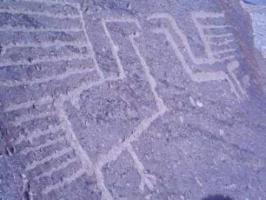Copy Link
Add to Bookmark
Report
AIList Digest Volume 8 Issue 102

AIList Digest Tuesday, 11 Oct 1988 Volume 8 : Issue 102
Even More Queries and Responses:
Implementation of Evidential Reasoning
Expert systems and weather forecasting
Concept Learning & ID3 (Quinlan)
Genetic Learning Algorithms
AI applications to building design and construction
Language Translator (lisp)
Fuzzy Relational Data Bases
Looking for common-sense engineering situations
Dictionary or Thesaurus
Info on PROTEGE/RIME
----------------------------------------------------------------------
Date: 4 Oct 88 13:51:48 GMT
From: efrethei@afit-ab.arpa (Erik J. Fretheim)
Subject: Implementation of Evidential Reasoning
Does anyone have an implementation which evaluates Evidential
Reasoning prepositions (Dempster-Schafer Theory). I would
perfer an Ada package but am not extremely particular.
thank you.
ejf
------------------------------
Date: 4 Oct 88 15:25:53 GMT
From: mcvax!ukc!reading!cf-cm!cybaswan!cslaurie@uunet.uu.net (Laurie
Moseley )
Subject: Expert systems and weather forecasting
##########################################################################
I'm trying to find out if anyone is working on expert systems in weather
forecasting. Names, addresses, references ... would all be welcome. With
thanks in advance
Laurence Moseley
##########################################################################
Laurie Moseley
Computer Science, University College, Swansea SA2 8PP, UK
Tel: +44 792 295399
JANET: cslaurie@uk.ac.swan.pyr
###########################################################################
------------------------------
Date: 5 Oct 88 10:33:52 GMT
From: mcvax!prlb2!kulcs!uiag!gerrit@uunet.uu.net (Cap Gerrit)
Subject: Concept Learning & ID3 (Quinlan)
Does anybody out there in the world has an implementation of
the ID3 algorithm of Quinlan ?? Or (not exclusive) of the CLS algorithm
of Hunt which is being used in ID3.
A very good description of these algo's would also being appreciated !
We have developped a theoretical framework of a concept learning algo
and as an example I have a model in our framework which should be
a simulation of this ID3 algo.
Unfortunately I didn't found much more than a vage description of ID3
in various books and papers.
What I want to do is to make an implemantation of our framework and
testing the simulation against the original ID3.
It would be fine if the implementation was in C or in Prolog but
other languages would do also.
Gerrit Cap
Dep. of Mathematics and Computer Science
University of Antwerp
Belgium (Europe)
mail address : ...!prlb2!uiag!gerrit
I'm sorry if this posting is a bit unusual to other news readers but
this is my first posting. Also I want to appologise for my bad English
and the limited mail address.
------------------------------
Date: 5 Oct 88 17:13 GMT
From: umix!caen.engin.umich.edu!offutt@uunet.UU.NET (daniel m offutt)
Subject: Genetic Learning Algorithms
> In addition, offutt@caen.engin.umich.edu (Daniel M. Offutt) is
> offering a GA function optimization package. Contact him for details.
Rather, a package is available from John Grefenstette (gref@nrl-aic.arpa).
Ask him for his package called "GENESIS" and ask him to put you on the
"GA-LIST" mailing list while you are at it.
I have used John's package extensively and can recommend it highly. But
I did not write it and it is not available from me. For more details,
see my post on genetic algorithms and John's package on sci.physics or
sci.math.stat, a few weeks back.
-----------------------------------------------------------------------------
Dan Offutt offutt@caen.engin.umich.edu
------------------------------
Date: 5 Oct 88 21:26:58 GMT
From: sean@cadre.dsl.pittsburgh.edu (Sean McLinden)
Subject: AI applications to building design and construction
I am well aware of a number of AI applications to CAD that are used
in building design, but I am curious to know if anyone has looked at
the various processes that occur during the engineering phase of a
project.
It seems to me that the process is quite interesting. I don't propose
to know a lot about it, but once the architect has finished the basic
design it is left to the engineer to determine what materials and
methods to use for the support systems (this is a GROSS oversimpli-
fication, I realize). (S)he, in turn, must approach subsystem engineers
for things like mechanical, electrical, plumbing designs. These, to
carry it further, will deal with the contractors, and their suppliers,
to get estimates of the cost and strenghth of material, the availablility
of components, and the like. The whole process goes through a number of
iterations. What seems interesting about it is how much information is
available during this process, yet most of the decision-makers need only
know a selected amount in order to answer specific questions posed
to them. In that sense information transfer between agents involves
a type of structured query (no reflection on the relational database),
that is to say. There is a common expertise between participants which
allows them to make decisions quickly by sifting through a lot of
information while retrieving only that which pertains to the problem
at hand.
Considering the number of dollars involved in U.S. Government funded
construction, it seems that GSA or OMB might be interested in developing
such a system. It would, of course, require a set of standards for
expressing certain concepts which almost assuredly does not exist in
the industry, already.
Any pointers would be appreciated.
Sean McLinden
Decision Systems Laboratory
University of Pittsburgh
------------------------------
Date: 6 Oct 88 12:41:34 GMT
From: mcvax!enea!kth!draken!chalmers!tekn01.chalmers.se!m85_miche@uune
t.uu.net (When lispers hack ... the fun begun)
Subject: Language Translator (lisp)
Hello Out there !
Is there by any chance anyone sitting on a source translating some
language to another ?
I've heard that there is some tryings to translate English to
Chinese .... is there any truth in that ?
Which litterature can I seek what I want ?
Thanks for any reply !
/Michel
------------------------------
Date: 10 Oct 88 17:26:11 GMT
From: mailrus!ncar!tank!tartarus.uchicago.edu!mitchell@ohio-state.arpa
(Mitchell Marks)
Subject: Re: Language Translator (lisp)
In article <227@tekn01.chalmers.se> m85_miche@tekn01.chalmers.se writes:
:Is there by any chance anyone sitting on a source translating some
:language to another ?
:
:I've heard that there is some tryings to translate English to
:Chinese .... is there any truth in that ?
:
:Which litterature can I seek what I want ?
_Computational_Linguistics_ had a couple special issues on machine translation
not too long ago: Vol 11 No. 1 (January-March 1985) and
Vol 11 Nos. 2-3 (April-Sept 1985)
with a review article by Jonathan Slocum in the first issue and reports
of particular projects filling out the rest of these issues.
A recent book on this topic is _Machine_Translation:_Theoretical_and_
methodological_issues, ed. Sergei Nirenburg, Cambridge U.P. 1987. The
volume starts with overview articles by Nirenburg and by Allan Tucker,
and contains articles addressing a variety of issues.
-- Mitch Marks
mitchell@tartarus.UChicago.EDU
------------------------------
Date: 6 Oct 88 21:09:11 GMT
From: mailrus!eecae!cps3xx!usenet@ohio-state.arpa (Usenet file owner)
Subject: Fuzzy Relational Data Bases
Hi,
I am looking for a paper by Zemankova-Leech, M., and A. Kandel
"Fuzzy Relational Data Bases - A Key to Expert Systems."
Verlag TUV Rheinland, Koln, Germany.
Is there anybody who can tell me where I can find it ?
Thanks a lot.
Kuan, Yih-pyng
Dept. of Computer Science
Michigan State University
kuan@cpsvax.msu.edu
------------------------------
Date: 7 Oct 88 05:17:18 GMT
From: csli!rustcat@labrea.stanford.edu (Vallury Prabhakar)
Subject: Looking for common-sense engineering situations
Hello,
I am looking for books/literature which contains a (hopefully) large
collection of engineering problems based on day-to-day phenomena. I
include in this definition, ways and means of roughly approximating
the required characteristics such as, say Young's modulus, frictional
coefficients, etc. As might be apparent, I am mainly interested in
problems related to Mechanical Engineering subjects such as S of M,
Dynamics, statics, controls, fluids etc. The problems should be
mainly solvable by basic engineering theory, and indeed should test
the complete understanding of these basic concepts by the person
trying to solve them.
Some example problems that I can think of are:
1) Given a flexible rod of certain dimensions, how would you find
the Young's modulus?
2) You're given the wheel of a car, and a torsional shaft. How
would you approximate the Ip of the wheel?
3) Why is it apparently easier to turn a screw with a long screw-
driver than a shorter one?
Hopefully, this gives you an idea of what I wish to find. What I *don't*
want is "Oh, you need a basic book on Dynamics/Statics/whatever". I
do not need any more theoretical background and derivations. I have those,
thank you very much. What I wish to find is a collection of seemingly
trivial and unimportant problems whose solution lies in these truly
basic principles.
I have a sneaky suspicion that I might get flamed for putting this in
comp.ai. If this is in violation of USENET practice, I apologize. I was
unable to think of/find any other relevant newsgroup, and besides where
would AI be without principles of common sense engineering?
Enjoy.
-- Vallury Prabhakar
-- rustcat@cnc-sun.stanford.edu
------------------------------
Date: 7 Oct 88 13:15:57 GMT
From: uflorida!mailrus!eecae!cps3xx!usenet@gatech.edu (Usenet file
owner)
Subject: Dictionary or Thesaurus
We are working on a natural language processing program and need an
english dictionary or thesaurus which, for each word, lists the part of
speech of that word. Does anyone know where we can get such a file?
-brian
------------------------------
Date: 8 Oct 88 21:00:26 GMT
From: suroy@steppenwolf.rutgers.edu (Subrata Roy)
Subject: Info on PROTEGE/RIME
In the recent AAAI-88 invited talk on "Knowledge acquisiton..."
John Mcdermott mentioned about two systems
PROTEGE & RIME which provide a methodology for defining
problem solving methods.
I would appreciate if anyone can help me find out about these
systems by pointing out suitable references.
thanks,
-Subrata
--
___
Subrata Roy
ARPA: suroy@paul.rutgers.edu
suroy@aramis.rutgers.edu
UUCP: {ames, cbosgd, harvard, moss}!rutgers!paul.rutgers.edu!suroy
------------------------------
End of AIList Digest
********************
























